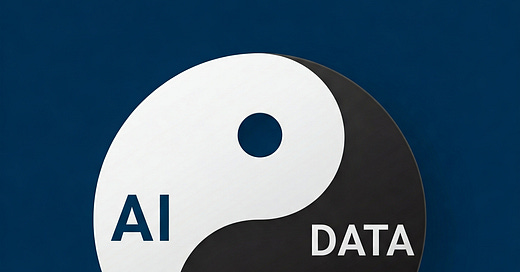CEO Ali Ghodsi: Databricks Is an 'AI Database'
That unofficial label met resistance in the past, he says, but it's the most accurate way to describe the platform.
Welcome to the Cloud Database Report. I’m John Foley, a long-time tech journalist who has also worked in strategic comms at Oracle, IBM, and MongoDB. Now I’m an independent tech writer. Connect with me on LinkedIn.
There was an interesting comment thread on LinkedIn the other day where a customer referred to Databricks as an “AI database.” That observation prompted Databricks CEO Ali Ghodsi to weigh in.
“Fun fact: for many years (since 2016) I’ve been advocating for Databricks to say it’s an AI Database,” Ghodsi responded. “But all marketing firms we worked with, and all the user surveys, showed that people hated it. I still think it’s the most accurate way in 2 words to understand what Databricks does (and has been doing since 2013)!”
It’s funny that the marketing gurus quashed the idea because AI databases are one of the hottest trends in tech right now. AWS, Google Cloud, Microsoft, and Oracle all have what can be described as AI databases. And a newer generation of vector database platforms are exactly that, as well.
In fact, Oracle went so far as to name its latest and greatest, Oracle Database 23ai. Nothing subtle about that. Below is my post on 23ai.
A unified AI platform
Credit to Jaco van Gelder, a freelance data engineer with Ikea, for sparking this conversation. Here’s how he explains the idea behind the term AI database.
“It’s not just about model training anymore, but it’s about production-grade AI systems that need a database built for that,” he posts. “One that combines both transactional and analytical data in a unified platform.”
Others point out that Databricks’ recent acquisition of Neon, a Postgres startup, makes the Databricks platform better suited for AI because Neon adds online transaction processing (OLTP). That aligns with van Gelder’s comment about an AI database comprising transactional and analytical data in a unified platform.
You can view van Gelder’s post and the other comments here.
For the record, Databricks identifies as a “data intelligence platform.” The well-intentioned marketing people who resisted calling Databricks an AI database in the past may be kicking themselves now, because there’s a market premium for tech companies that identify with AI. I’m sure that’s not lost on Oracle, the company that put “ai” right into the name of its database.
Changing definition
Part of what we’re seeing is growing recognition that data and AI are inseparable. They’re not synonymous, but you can’t have AI without data.
In fact, take that a step further: You can’t have good AI without good data. Which is why every organization will soon need an AI database.
Additional reading





